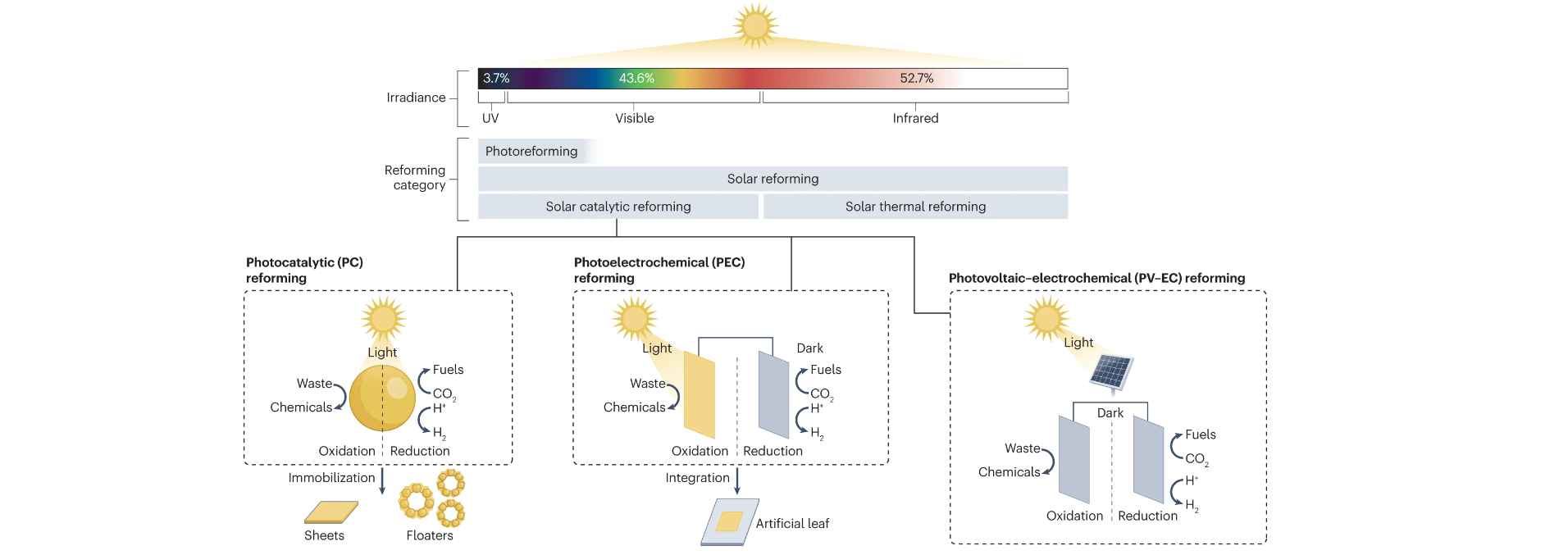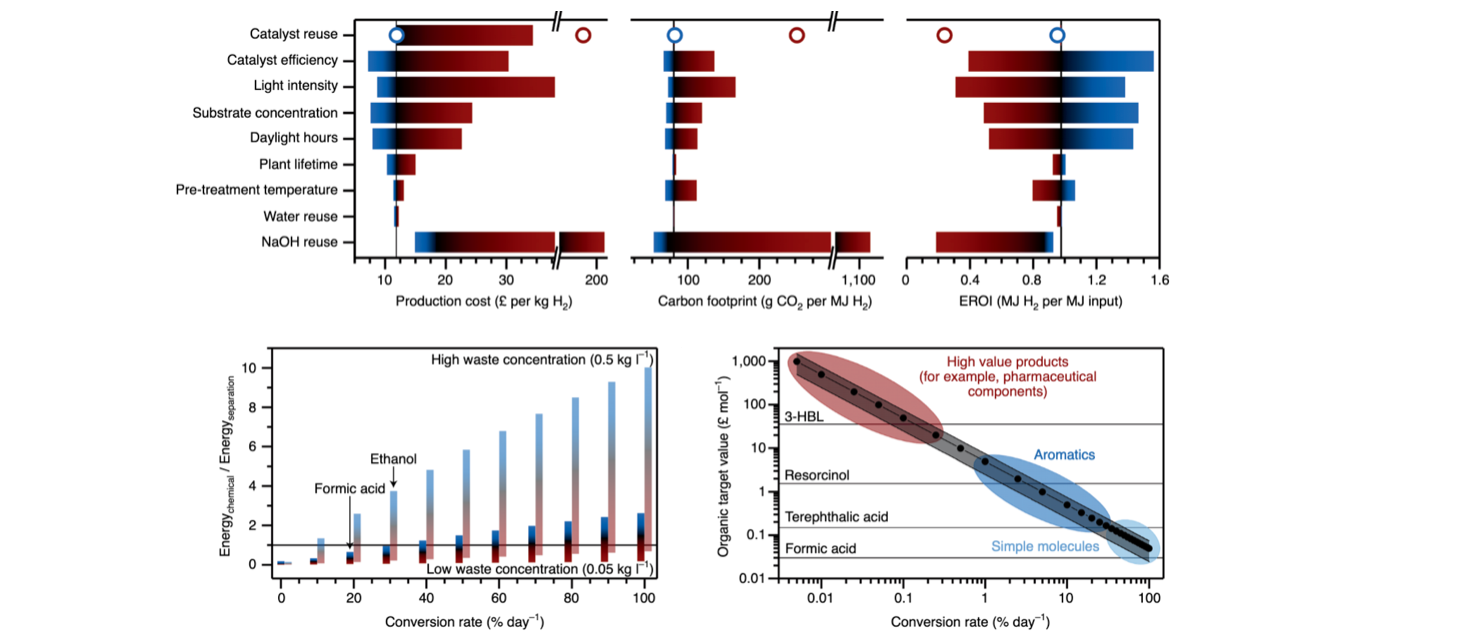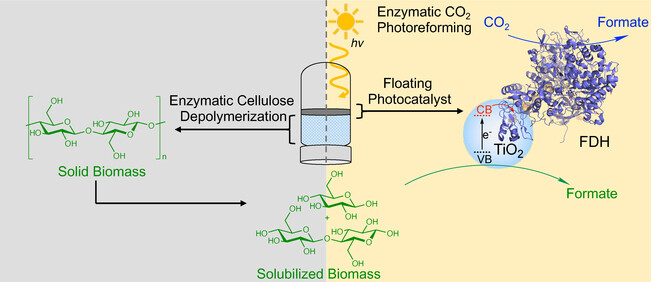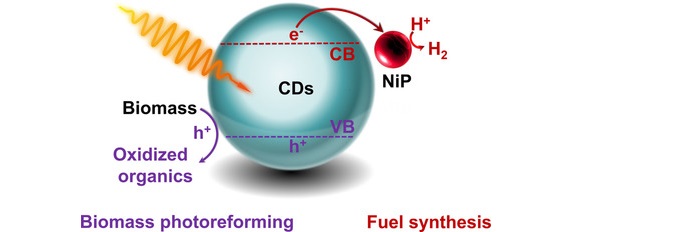-
Solar reforming
Why make oxygen from water if you could mitigate waste and
make useful chemicals instead?
Solar fuel synthesis is a sustainable and potentially economical
technology for producing energy carriers such as “green” H2
fuel through water splitting or liquid fuels from CO2
reduction. Such classical solar fuel reactions are usually limited
by the water oxidation half-reaction, which is kinetically and
energetically demanding, requires often expensive catalysts and
produces solely O2. Our research aims to overcome these
challenges by using alternative oxidation half-reactions to drive
the breakdown of waste polymers or chemicals into valuable organic
products, thus mitigating waste, generating products of high value
and reducing the thermodynamic and kinetic constraints of the
oxidative half-reaction. We utilise a variety of novel
photocatalysts, including quantum dots and carbon-based light
absorbers, as well as photoelectrochemical platforms to convert
plastic- or biomass-derived waste into organics and fuel using our
solar reforming technology. The oxidative upcycling of biomass and
plastic waste can thereby by coupled to the reductive production
of H2 or fuels from CO2 reduction.
Our aim is to enhance the sustainability and economic value of
solar fuel production by developing processes that simultaneously
produce fuels and drive value-added organic transformations while
mitigating waste.
Selected recent publications

Solar reforming as an emerging technology for circular chemical industries.
Bhattacharjee, S.; Linley, S.; Reisner, E. Nat. Rev. Chem., 2024, 8, 87-105.

Solar-driven reforming of solid waste for a sustainable future.
Uekert, T.; Pichler, C. M.; Reisner, E. Nat. Sustain.,
2021, 4, 383-391.




